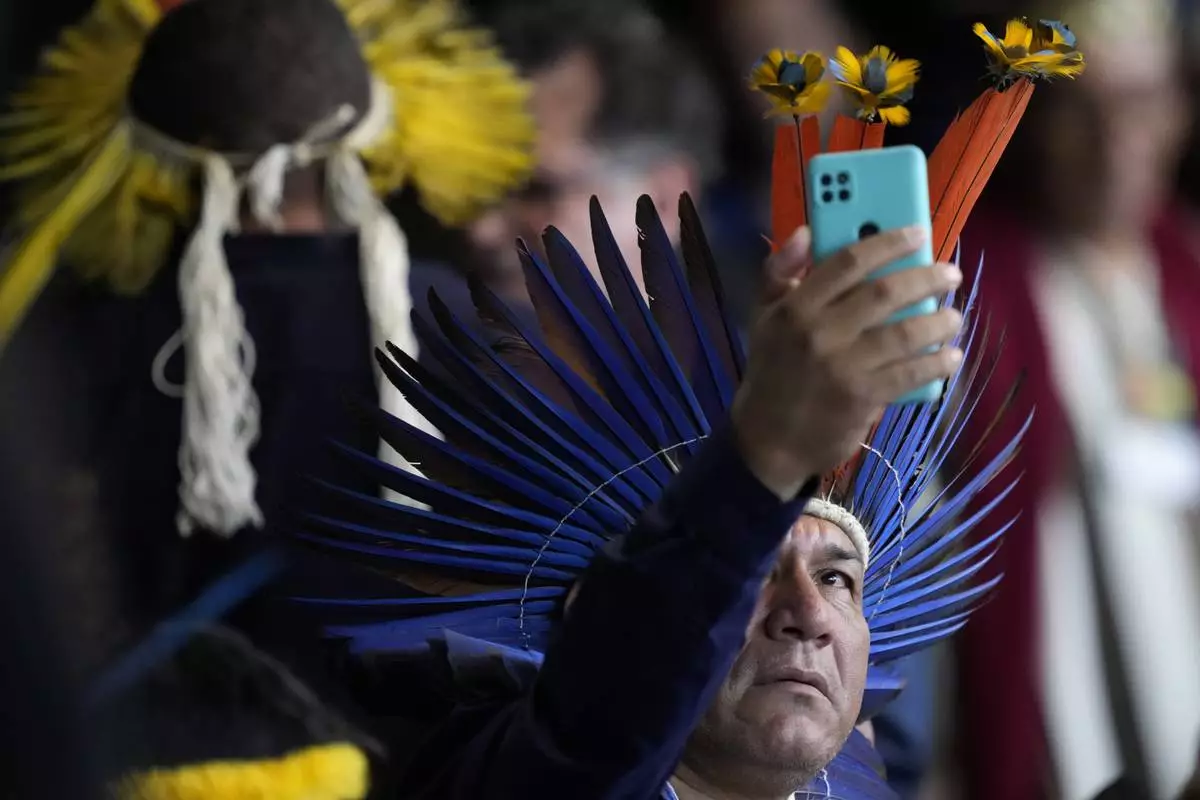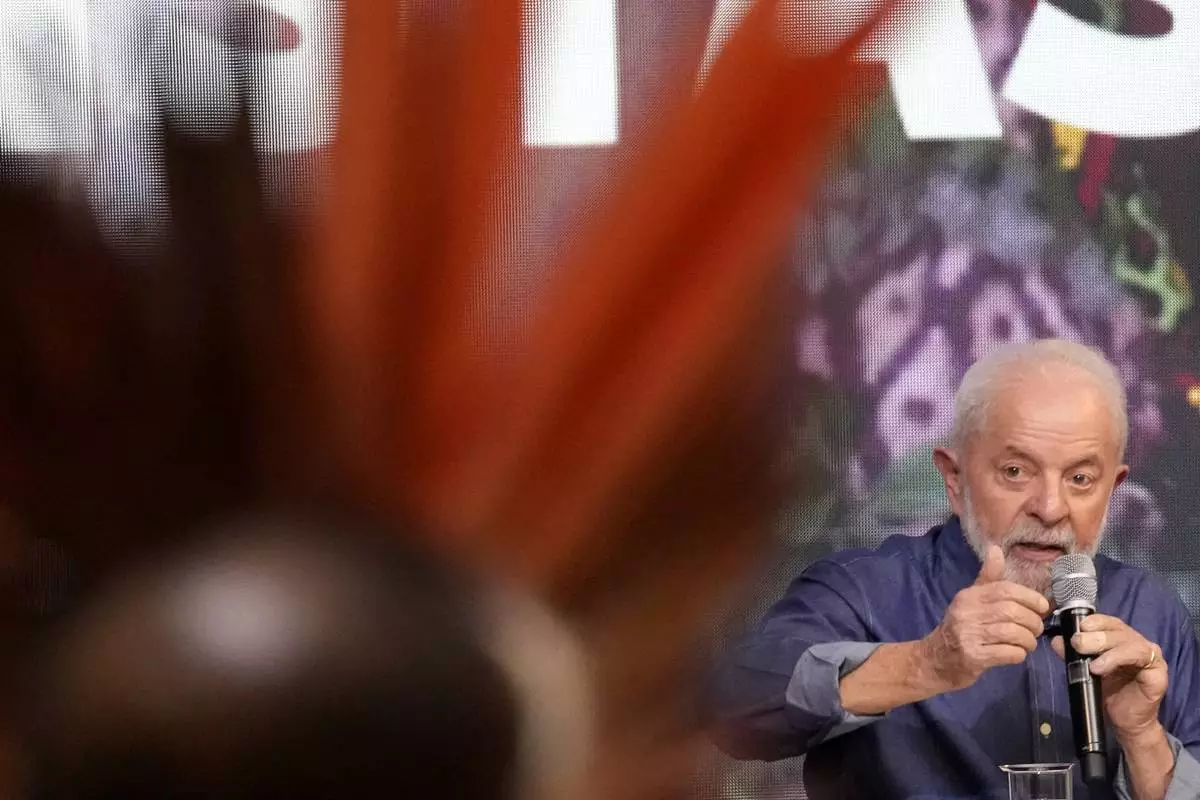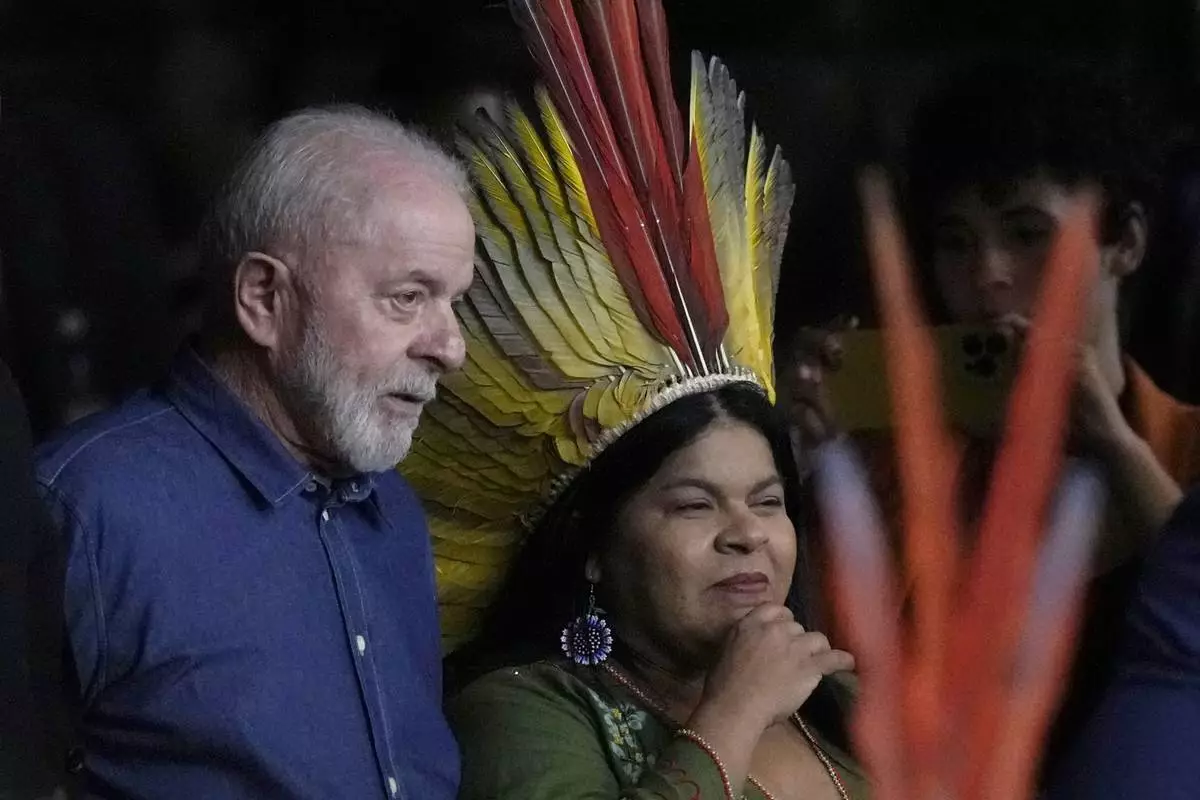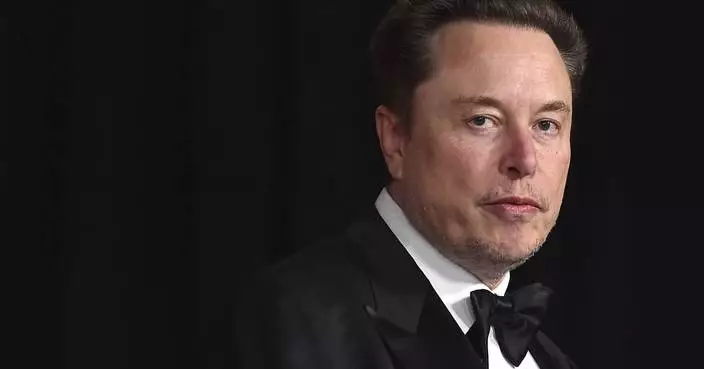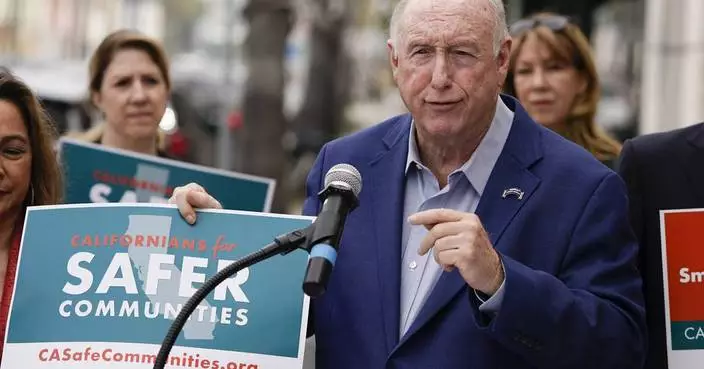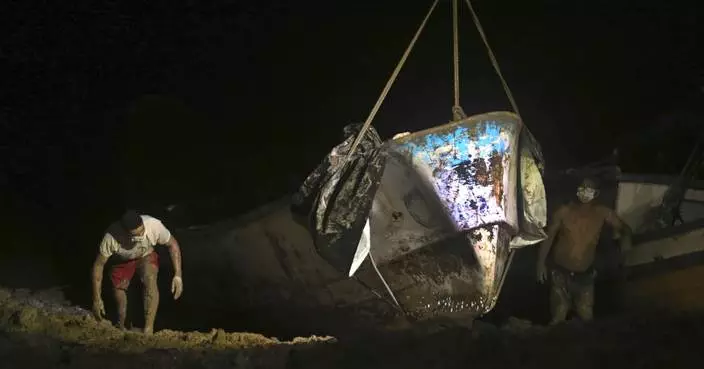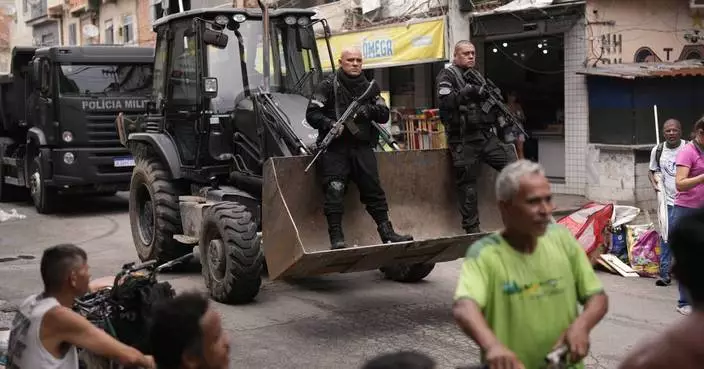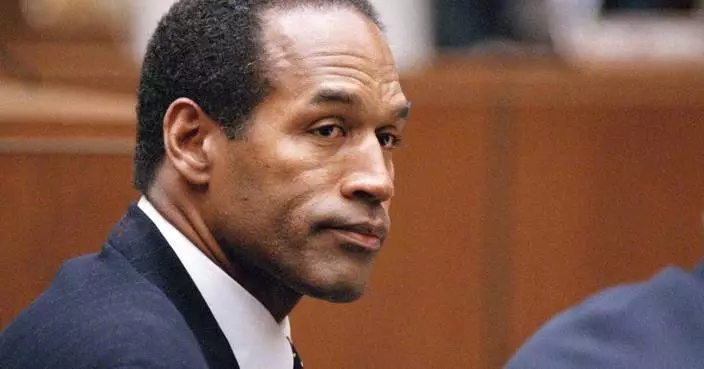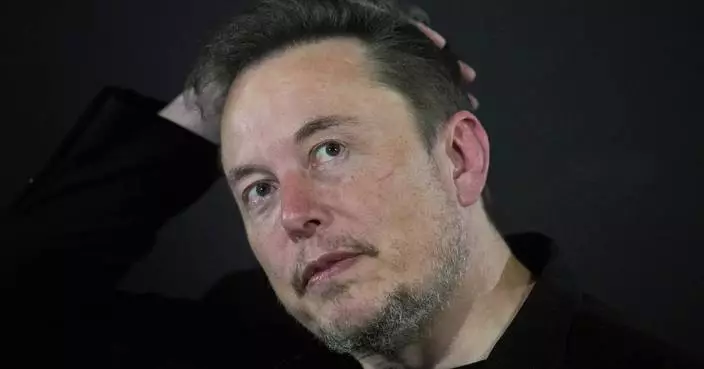A Brazilian judge issued an arrest warrant on Thursday for former President Luiz Inacio Lula da Silva, dealing a major blow to the once wildly popular leader who was trying to mount a political comeback ahead of October's elections.
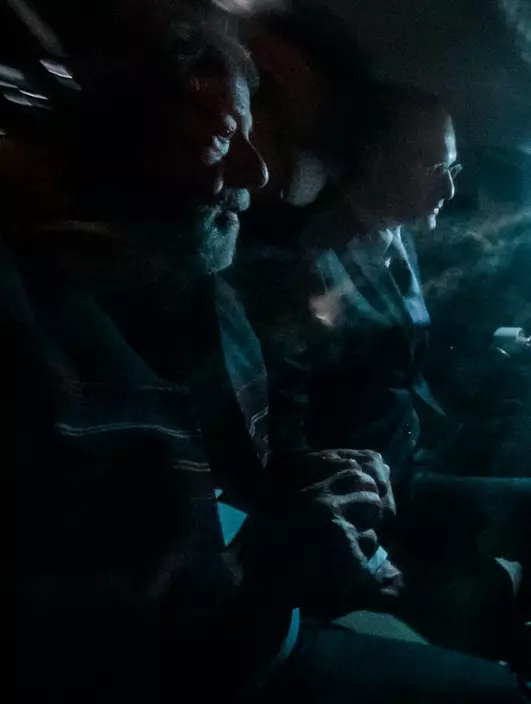
Brazil's former President Luiz Inacio Lula da Silva, left, and his lawyer Cristiano Zanin leave the Lula Institute building in Sao Paulo, Brazil, Thursday, April 5, 2018. (AP Photo/Marcelo Chello)
The warrant came several hours after the country's top body, the Supreme Federal Tribunal, voted 6-5 to deny a request by da Silva to stay out of prison while he appealed a corruption conviction that he contends was simply a way to keep him off the ballot.
Federal judge Sergio Moro gave Brazil's former president 24 hours to present himself to police in the southern city of Curitiba. In a statement, Moro said he was giving da Silva the opportunity to come in of his own accord because he had been president of the nation.
Last year, Moro convicted da Silva of trading favors with a construction company in exchange for the promise of a beachfront apartment. That conviction was upheld by an appeals court in January.
The speed with which Moro issued the warrant surprised many, as legal observers said there were technicalities from da Silva's upheld appeal that would not be sorted out until next week.
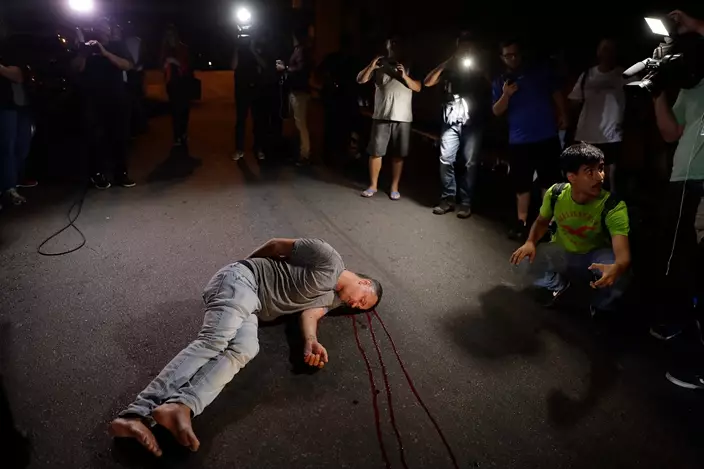
A man lays injured on the street after he was hit by a passing vehicle, apparently by accident, after he fought with supporters of Brazil's former President Luiz Inacio Lula da Silva outside the Lula Institute after da Silva had already left the building in Sao Paulo, Brazil, Thursday, April 5, 2018. (AP Photo/Andre Penner)
Such technicalities "were simply a pathology that should be eliminated from the judicial world," Moro said in his statement.
Minutes after Moro's issue the warrant, a fight broke out in front of the Lula Institute in Sao Paulo between hecklers and supporters of the former president universally known here as "Lula." One heckler was punched in the face and subsequently got hit by a passing vehicle as he was falling. He was taken to nearby hospital and police arrived.
"I've never seen this kind of hatred before," said Mariella Sanches, who was selling ice-cream where the fight broke out. "Why can't people get along?"
Da Silva's upcoming arrest will mark a colossal fall from grace for the man who led Latin America's most populous nation between 2003 and 2010, and left office with approval ratings over 80 percent.
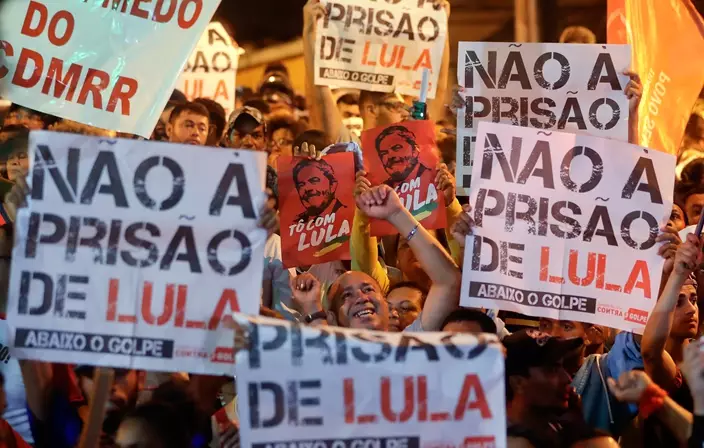
Supporters of Brazil's former President Luiz Inacio Lula da Silva, with signs that read in Portuguese "No to prison for Lula," gather outside the Metallurgic Union headquarters after an arrest warrant for da Silva was issued, in Sao Bernardo do Campo, Brazil, Thursday, April 5, 2018. (AP Photo/Andre Penner)
Former U.S. President Barack Obama once called da Silva the "most popular politician on Earth."
Since leaving office, things have steadily gotten worse for da Silva, who has been charged in several corruption cases. He has always maintained his innocence while continuing to campaign across the country the past year.
Despite his legal troubles, he still leads preference polls to return to office — if by some chance he is allowed to run.
Earlier Thursday, the head of Brazil's Workers' Party warned that jailing da Silva would turn Latin America's largest nation into a "banana republic." His lawyers put out several statements saying they were filing injunctions in hopes of keeping him out of prison.
"We consider this to be a political imprisonment, an imprisonment that will expose Brazil before the world," said Gleisi Hoffmann, chairwoman of the Workers' Party. "We will become a banana republic."
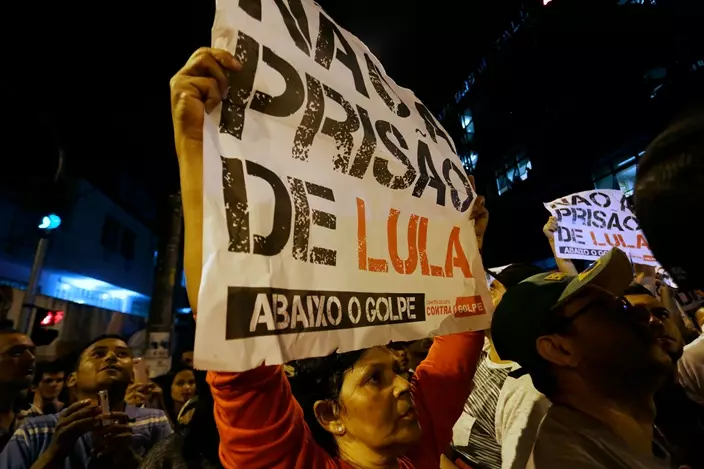
Supporters of Brazil's former President Luiz Inacio Lula da Silva, with signs that read in Portuguese "No to prison for Lula," gather outside the Metallurgic Union headquarters, after an arrest warrant for Lula was issued, in Sao Bernardo do Campo, Brazil, Thursday, April 5, 2018. (AP Photo/Nelson Antoine)
Hoffmann also insisted that da Silva, 72, would be the party's candidate in October. The ex-president has not spoken since the ruling.
Like so much in a nation that has become deeply polarized, the reality that the once popular leader would be jailed was being interpreted differently by supporters and detractors.
"Brazil scored a goal against impunity and corruption," said Congressman Jair Bolsonaro, a right-leaning former army captain who is second in the polls after da Silva.
Mariana Setra, a da Silva supporter in Sao Paulo, called the top court's decision "ridiculous."
"It was applied to only one person," she said. "As if Lula were the only thief in this country."
Da Silva is the latest of many high-profile people to be ensnared in possibly the largest corruption scandal in Latin American history. Over the last four years, Brazilians have experienced near weekly police operations and arrests of elite, from top politicians to businessmen like former Odebrecht CEO Marcelo Odebrecht.
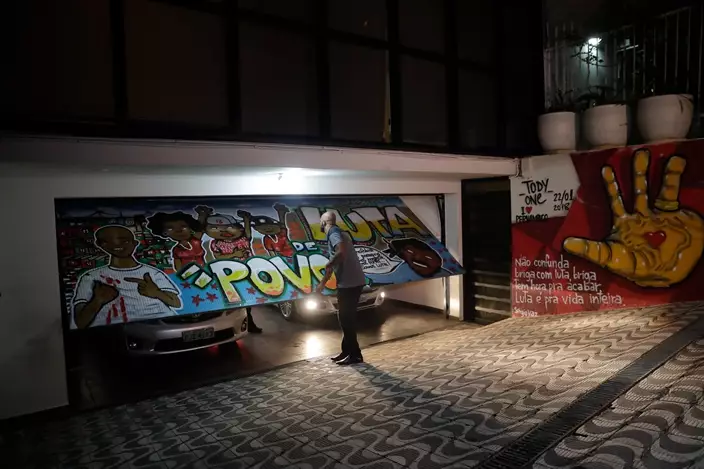
A security guard closes the garage door of the Lula Institute after Brazil's former President Luiz Inacio Lula da Silva left the building in Sao Paulo, Brazil, Thursday, April 5, 2018. (AP Photo/Andre Penner)
Investigators uncovered a major scheme in which construction companies essentially formed a cartel that doled out inflated contracts from state oil company Petrobras, paying billions in kickbacks to politicians and businessmen.
Moro, who oversees cases in the so-Called "Operation Car Wash," is hailed as a hero by many Brazilians. Others, particularly on the left, see him as a partisan hit man out to get da Silva and the Workers' Party.
Still, the list of targets in the scandal include people across the spectrum, including President Michel Temer. Temer took power in 2016 after da Silva's successor and protege, Dilma Rousseff, was impeached and ousted from office.
Last year, Temer was twice charged with corruption but remained in office because in both cases Congress, which must vote on criminal cases involving a sitting president, decided to spare him prosecution. Many members of Congress have been charged with corruption or are being investigated.
Da Silva was convicted in July of helping a construction company get sweetheart contracts in exchange for the promise of the apartment. He denies any wrongdoing in that case or in several other corruption cases that have yet to be tried. An appeals court upheld the conviction in January, and the three reviewing magistrates even lengthened the sentence to 12 years and one month.
Technically, the Supreme Federal Tribunal's decision doesn't keep da Silva off the ballot. In August, the country's top electoral court makes final decisions about candidacies. It was expected to deny da Silva's candidacy under Brazil's "clean slate" law, which disqualifies people who have had criminal convictions upheld. However, da Silva could appeal such a decision, though doing so from jail would be more complicated.
Sen. Lindbergh Farias from the Workers' Party said vigils would be organized nationwide beginning on Friday.
"People want to be close to President Lula after this injustice," he said.
Whether the Workers' Party will be able to mobilize major demonstrations remains to be seen. During the impeachment trials against Rousseff in 2016, many demonstrations were small despite calls by major unions to take to the streets.



